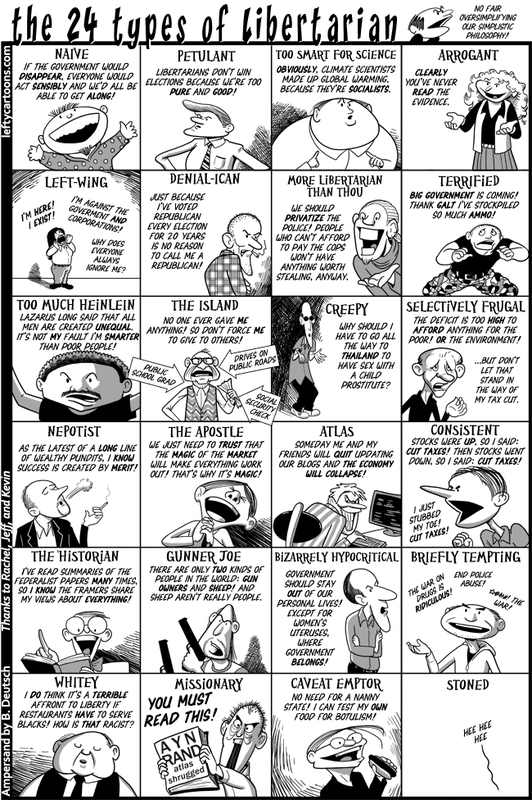- Home
- NASA is awesome: let it BE awesome
- The problem of bias in science
- Assaults on privacy
- "Free trade"
- Gov't & the lemonade stand
- Crackpot science
- The self-indulgence of libertarianism
- The perils of space privatization
- My vote for President doesn't matter
- Health care systems: bang for your buck
- "CRomnibus": Government spending bill, 2014
- Hidden inflation: shopping as second job
- "You didn't build that"
- US infrastructure & jobs
- Debt "crisis": open letter
- Occupy the Lie
- New Page
The self-indulgence of libertarianism
July 21, 2012
Libertarianism can be puzzling, especially when reduced to the standard talking point of "smaller government is always better."
There is a certain self-indulgence in libertarian philosophy of "I know how to spend MY money best." However hard-earned your money may have been, it's hardly due solely to your own effort. We all live in a society where infrastructure as well as basic research is largely due to the community effort known as government and government funding.
Even if you had an exclusively private education from start to finish, how many of your employees would have the credentials to make your business run, or how many of your customers or clients would have the jobs to earn the money that you earn from them, without public education?
Every time you drive to work on public roads, collect your postal mail, drink clean water, eat your lunch without significant concern of food poisoning, go home to a neighborhood where you have little fear of crime, or go to sleep on a mattress without worry of it catching fire in the night, just to name a few daily activities, you reap the invisible benefits of government.
Living in a civilized society has any number of useful perks. But like many societies which offer their members benefits, these perks are only possible because members pay their dues.
Libertarianism, then, seems as though it must come down on one of three positions: either libertarians don't WANT the perks of a civilized society that government delivers, they do want them but think that only those who can afford to purchase those perks ala carte from private industry deserve them, or they just don't want to pay their dues.

